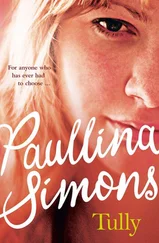Alexander saw his father glance at him furtively. He coughed and said, “Well, Nikita has disappeared. Maybe we can take his bathtub.”
There was no room for the Barringtons in all of Moscow. After a month of looking, Harold came home from work and said, “Listen, the Obkom man came to see me again. We can’t stay here. We have to move.”
“By when?” Jane exclaimed.
“Two days from now. They want us out.”
“But we have nowhere to go!”
Harold sighed. “They offered me a transfer to Leningrad. There is more work—an industrial plant, a carpentry plant, an electricity plant.”
“What, no electricity plants in Moscow, Dad?”
Harold ignored Alexander. “We’ll go there. There’ll be more rooms available. You’ll see. Janie, you’ll get a job at the Leningrad public library.”
“Leningrad?” Alexander exclaimed. “Dad, I’m not leaving Moscow. I got friends here, school. Please.”
“Alexander, you’ll start a new school. Make new friends. We have no choice.”
“Yes,” Alexander said loudly. “But once we had a choice, didn’t we?”
“Alexander! You will not raise your voice to me,” Harold said. “Do you hear?”
“Loud and clear!” shouted Alexander. “I’m not going. Do you hear?”
Harold jumped up. Jane jumped up. Alexander jumped up.
Jane said, “No, stop it, stop it, you two!”
“You will not speak to me this way,” Harold said. “We are moving, and I don’t want to talk another minute about it.”
He turned to his wife and said, “Oh, and one more thing.” Sheepishly, he coughed. “They want us to change our name. To something more Russian.”
Alexander scoffed. “Why now? Why after all these years?”
“Because!” Harold shouted, losing control. “They want us to show our allegiance! You’re going to be sixteen next month. You’re going to register for the Red Army. You need a Russian name. The fewer questions, the better. We need to be Russians now. It will be easier for us.” He lowered his gaze.
“God, Dad,” Alexander exclaimed. “Will this ever stop? We can’t even keep our name anymore? It’s not enough to kick us out of our home, to move us to another city? We need to lose our name, too? What else have we got?”
“We are doing the right thing. Our name is an American name. We should have changed it long ago.”
“That’s right,” said Alexander. “The Frascas didn’t. The van Dorens didn’t. And look what happened to them. They’re on vacation. Extended vacation, right, Dad?”
Harold raised his hand to Alexander, who pushed him away. “Don’t touch me,” he said coldly.
Harold tried again. Alexander pushed him away again, but this time he didn’t let go of his father’s hands. He did not want his mother to see him lose his temper, his poor mother, who stood shaking and crying, clasping her hands at her two men, pleading, “Darlings, Harold, Alexander, I beg you, stop it, stop it.”
“Tell him to stop it!” Harold said. “You’ve raised him like this. No respect for anybody.”
His mother came over to Alexander and grabbed hold of his arms. “Please, son,” she said. “Calm down. It’ll be all right.”
“You think so, Mom? We’re moving cities, we’re changing our name just like this hotel. You call that all right?”
“Yes,” she said. “We still have each other. We still have our lives.”
“How the definition of being all right changes,” said Alexander, extricating himself from his mother and taking his coat.
“Alexander, don’t walk out that door,” said Harold. “I forbid you to walk out that door.”
Alexander turned to his father, looked him in the eye, and said, “Go ahead and stop me.”
He left and did not come back home for two days. And then they packed up and left the Kirov Hotel.
His mother was drunk and unable to help carry the suitcases to the train.
When did Alexander first begin to feel, to know, to sense that something was desperately wrong with his mother? That was the point: something wasn’t desperately wrong with her all at once. At first she had been slightly not herself, and it wasn’t for Alexander to say what was the matter with his adult parent. His father could have seen, but his father had no eyes. Alexander knew his father was the kind of man who simply could not keep the personal and the global in his head at the same time. But whether Harold was aware and plainly ignored it, or whether he was actually oblivious, didn’t matter, and it didn’t change the simple fact that Jane Barrington gradually, without fanfare, without much to-do, much introduction and much warning permanently ceased to be the person she once was and became the person she wasn’t.
CHAPTER EIGHT
Ellis Island, 1943
EDWARD CAME IN TO check on Tatiana in the middle of August. She’d been in America seven weeks. She was sitting in her usual place by the window, with a naked and diapered Anthony on her lap, tickling him between his toes. She had been feeling much better, her breathing was deep, she was almost not coughing. She had not seen blood in her cough for a month. The New York air was doing her good.
Edward took the stethoscope from her chest. “Listen, you are doing much better. I think I’m going to have to discharge you.”
Tatiana said nothing.
“Do you have anywhere to go?” Edward paused. “You will need to get a job.”
“Edward,” said Tatiana, “I like it here.”
“Well, I know. But you’re all better.”
“I was thinking, maybe I work here? You need more nurse.”
“You want to work at Ellis?”
“Very much.”
Edward talked to the chief surgeon at the Public Health Department, who came in to talk to Tatiana, informing her that she would have to be put on something called a three-month probation to see if she could keep up with the work, if she had the necessary skills. He told her that she would not be employed by Ellis Island but by the PHD and as such would sometimes have to pull duty at the New York University hospital downtown if they had a shortage of nurses there. Tatiana agreed, but asked if she could live at Ellis, “maybe work as night nurse?” The surgeon was not keen. “Why would you want to? You could get yourself an apartment right across the bay. Our citizens don’t live here.”
Tatiana explained as best she could that she hoped some of the detained refugees at Ellis could look after her son while he was still small, and though she wanted to work, she had no one to leave him with and to make matters easier for everyone she could stay in her current convalescent room.
“But it’s so small!”
“One room just right for me.”
Tatiana asked Vikki to buy her a uniform and shoes. “You know you only get two pairs of shoes?” said Vikki. “War rationing. You want one of them to be nurse’s shoes?”
“I want my only pair to be nurse’s shoes,” said Tatiana. “What I need more shoes for?”
“What if you wanted to go dancing?” asked Vikki.
“Go where?”
“Dancing! You know, do a little lindy hop, a little jitterbug? What if you wanted to look nice? Your husband isn’t coming back, is he?”
“No,” said Tatiana, “my husband isn’t coming back.”
“Well, you definitely need nice new shoes if you’re going to be a widow.”
Tatiana shook her head. “I need nurse’s shoes and white uniform, and I need to stay at Ellis, and I not need nothing else.”
Vikki shook her head, her eyes flickering. “It’s anything else. When can you come have dinner with us? How about this Sunday? Dr. Ludlow says you’re being discharged.”
Vikki bought Tatiana a uniform that was slightly big, and shoes that were the right size, and after Edward discharged her, she continued to do what she had been doing in her white hospital gown and gray hospital robe—look after the foreign soldiers who were shipped to New York, treated, and then sent elsewhere on the continent to do POW labor duty. Many of them were German soldiers, some were Italian, some Ethiopian, one or two French. There were no Soviet soldiers.
Читать дальше












